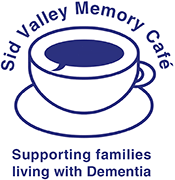Whilst you can ‘plan in’ time for reminiscence and sharing memories, the best way is to seize an opportunity when it arises naturally. Often people find it easier to reminisce when they are engaged with an activity. For example, playing a board game might strike up a memory about games they used to play as children.
Given that each person with dementia is unique, everyone will experience their own individual challenges with recalling and communicating memories. The following is a very ‘general’ guide to help you get the most from reminiscence.
Communication isn’t just about what you say, it’s about our body language, facial expressions and tone of our voice.
You can use lots of different ‘props’ to aid reminiscence and trigger memories – including music, different smells and photograph.
A person with dementia may confuse their ‘present day reality’ and talk about their childhood days as if they are actually living through them again. It is far better to join in their ‘reality’ than it is to contradict and correct them.
Try not to ask too many questions at once because otherwise the person with dementia will feel pressurised and overwhelmed.
Try to avoid questions linked to short-term memory (such as asking what was eaten for lunch) and the most recent past. Most people with mild to moderate dementia remember the distant past more clearly than recent events. This is because memories tend to decline in reverse order to when they were experienced.
Ask questions beginning with “Tell me about the time …” Starting a conversation in this way avoids questions with a ‘right’ or ‘wrong’ answer and allows the person to answer freely, drawing upon their preferred memories.
Your role in encouraging reminiscence, is to listen. Keep your comments brief and don’t interrupt.
Some memories may be painful – and be prepared to change the subject if the person looks or acts upset.
You may well find that a person with dementia ends up repeating themselves or asking the same question over again. This is because the brain doesn’t register that the question has only just been asked, due to the damage to the part of the brain which ‘registers’ and ‘stores’ recent information.
Emotional memory is the memory of the feelings associated with an event, as opposed to the facts of the event. This type of memory ‘lasts longer’ in a person with dementia. This means that although they may not be able to recall all the facts associated with an event or activity from their past, they will ‘feel’ positive emotional associations from talking about it.
“Each time an individual tells part of his/her life story, those who listen are like a mirror, reflecting and affirming their lives.”
Quote from: John Kunz, founder, International Institute of Reminiscence and Life Review
